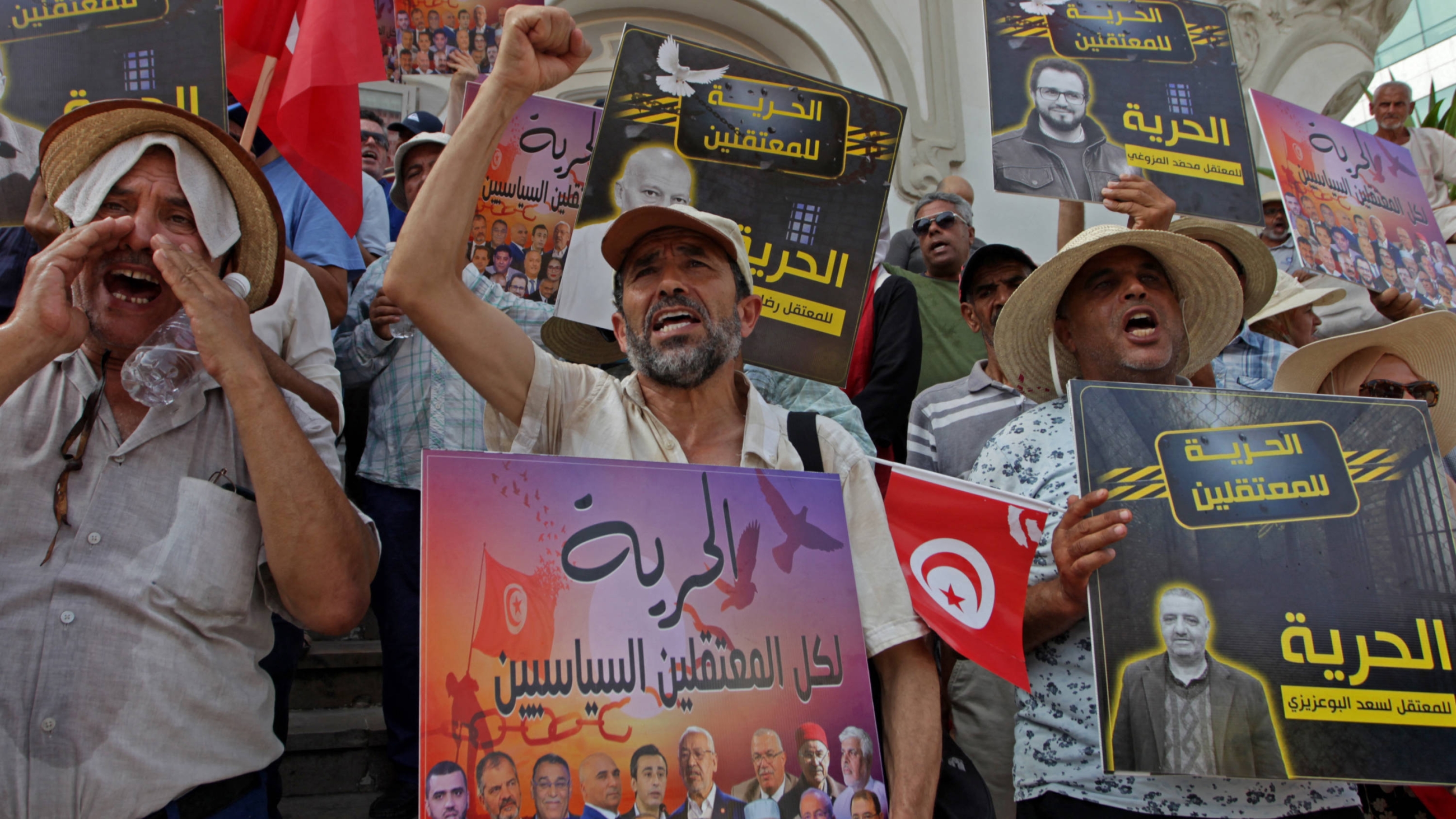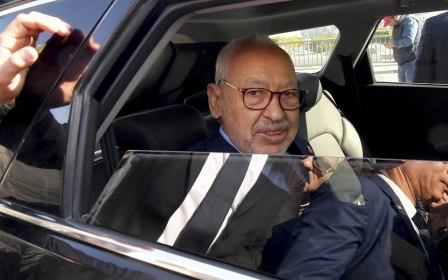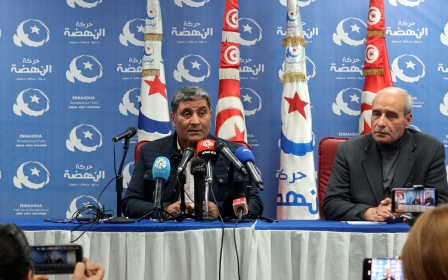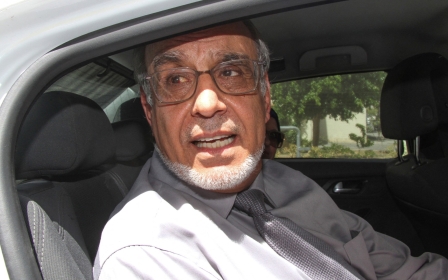Tunisia: More political prisoners announce hunger strike

More political prisoners have announced hunger strikes in Tunisia in protest against the mass arrest of critics of President Kais Saied.
Five detainees - Issam Chebbi, Ghazi Chaouachi, Abdel Hamid Jlassi, Khayam Turki and Ridha Belhaj - all imprisoned without trial in February, said they would begin the strikes on Monday.
The detainees, political leaders from across the political spectrum, were charged with “conspiracy against state security” amid an intensified crackdown on critics of Saied.
The Republican Party, of which Chebbi is secretary general, said in a statement that the strike was in solidarity with Jawhar Ben Mbarek, a prominent opposition leader who began a hunger strike on 25 September against the use of arbitrary detention.
They join Rached Ghannouchi, the leader of Ennahda, Tunisia’s main opposition party, who announced a hunger strike on Friday, and Tunisian writer and activist, Hatem al-Nafti, who announced his own strike in front of the Tunisian embassy in Paris in solidarity with Ben Mbarek.
New MEE newsletter: Jerusalem Dispatch
Sign up to get the latest insights and analysis on Israel-Palestine, alongside Turkey Unpacked and other MEE newsletters
On Sunday, the Committee for Respect for Freedoms and Human Rights in Tunisia called for a general hunger strike on October 5th to demand the release of all political detainees.
Dalia Mossadeq, Ben Mbarek’s sister and a member of the Defence Committee for Political Detainees, told Al-Araby that there is widespread public support for the strikes.
Tunisian police have detained more than 20 political prisoners this year.
Kais Saied, a former constitutional law professor, was elected president in 2019, vowing to clean up corruption and cut through political chaos.
In 2021, he closed down parliament and began consolidating power. He has arrested journalists, activists and political opponents, in what Amnesty International has decried as “a politically motivated witch hunt”.
Middle East Eye delivers independent and unrivalled coverage and analysis of the Middle East, North Africa and beyond. To learn more about republishing this content and the associated fees, please fill out this form. More about MEE can be found here.




